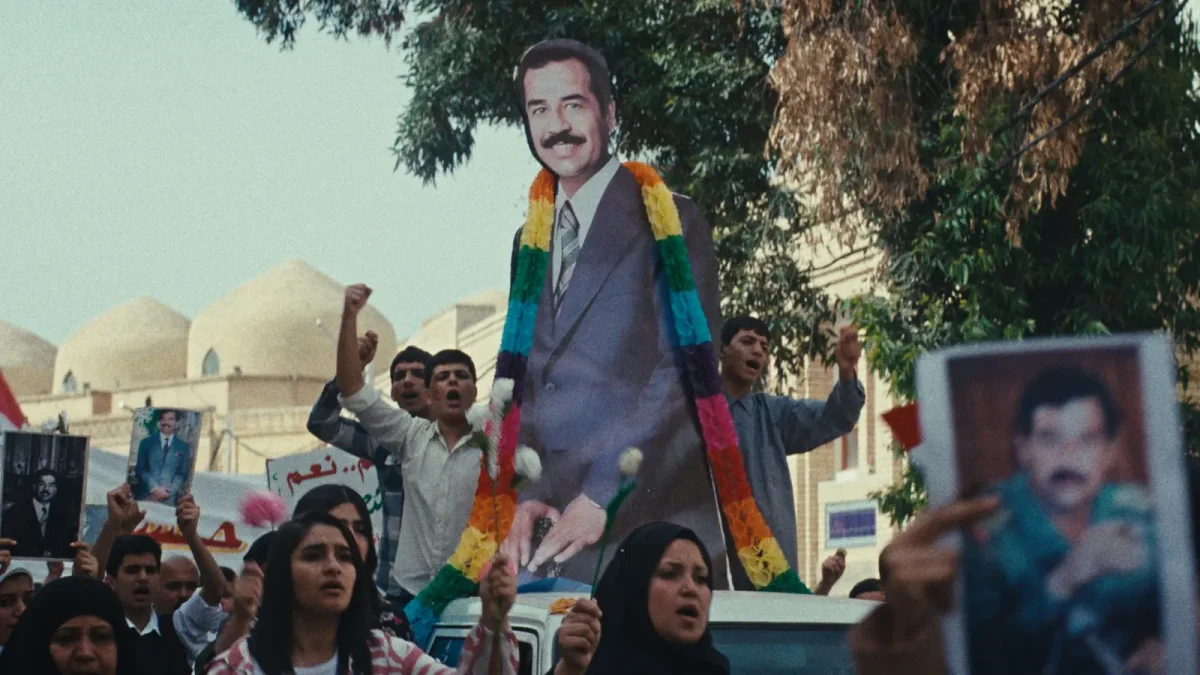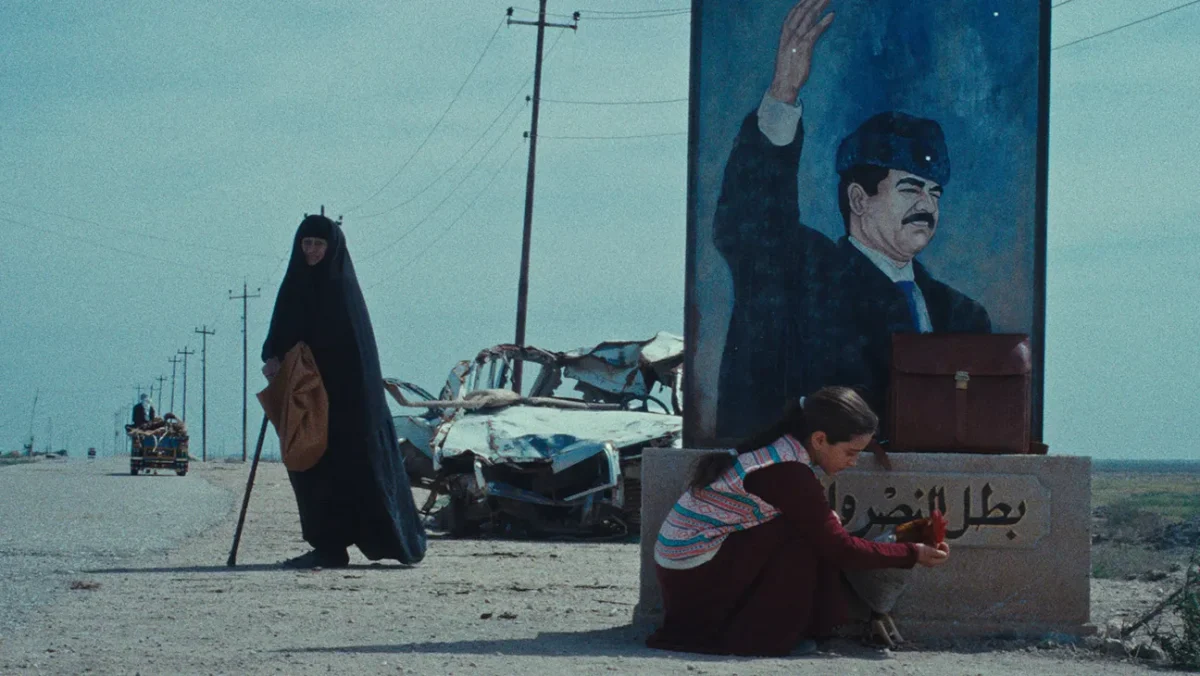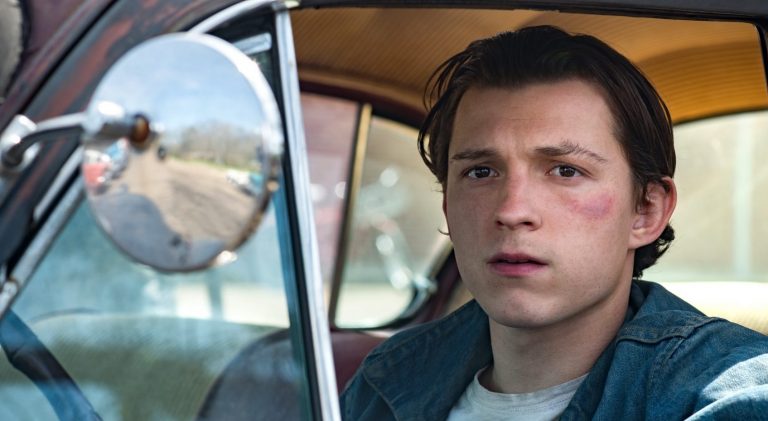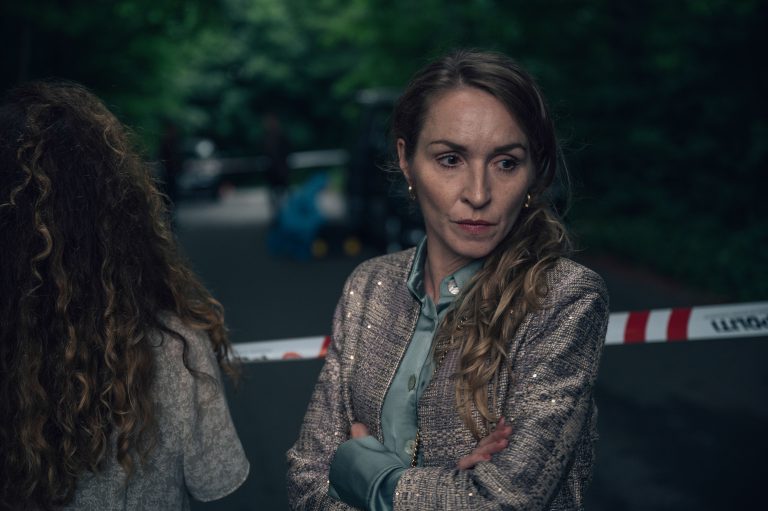“The President’s Cake” (Original title: Mamlaket al-qasab, 2025) has been released in an era in which, due to global circumstances, stories about fascism and authoritarianism are not uncommon. What makes Hasan Hadi’s intimate directorial debut a fascinating approach to these themes is that there is no poetic tragedy to the political state. This isn’t a film about those who fought valiantly to prevent their society from collapsing, but one focused on the innocents who were oblivious to the corruption of their leadership regime.
The most cruel repercussion of a military state is that those who are affected most by a vindictive system aren’t given the language or knowledge to understand that their rights are being trampled, and often only make these revelations when it is already too late. In “The President’s Cake,” the use of a child’s perspective isn’t a manipulative hook, but a compelling vantage point in which to soak in the casual indignities suffered by a generation devoid of hope.
Set in the 1990s, “The President’s Cake” examines the suffering of Iraq’s civilians after the nation faced a series of economic sanctions following the invasion of Kuwait. A few brief but critical notes regarding the larger political machinations by Hadi establish a sobering thesis on the realities of this era. Western nations may have intended to clean their hands by not engaging with the dangerous leadership of Iraq, but their policies only ended up affecting its civilians.
The nine-year-old girl Lamia (Baneen Ahmad Nayyef) knows nothing but that President Saddam Hussein is a figure of such renown within every level of infrastructure that any official notices released by his office are treated as gospel. Although the government couldn’t care less about the will of the people, Lamia is forced to appease the cult of personality due to an unexpectedly laborious school assignment.
“The President’s Cake” is a fictional film, but it’s based on a real practice that was common in Iraqi schools during the height of Saddamism. In order to celebrate the birth of the country’s renowned leader, who would presumably hold his position of authority for life, elementary schools would assign a student in each class to bake a cake in his honor. As ridiculous as this ceremonial activity may sound, it’s treated with utmost sincerity by the schools, with the implication that they would face consequences if they did not fall in line. That this task falls upon Lamia is not unexpected, but it does put her in a particularly challenging situation given her family’s poverty.

Read: 10 Unconventional Coming-of-Age Movies Worth Exploring
“The President’s Cake” is ultimately a series of macro events in which Lamia must gather the ingredients for the cake, and often must barter her livelihood for the sake of fulfilling this superfluous assignment. While she faces ridicule from the moment that the assignment begins, by both her teacher and classmates, Lamia’s more difficult task comes when she must explain her responsibilities to her older, sickly grandmother Bibi (Waheed Thabet Khreibat), who can only offer her a half-hearted opportunity to meet her foster mother.
Lamia may not have the capacity to understand who Hussain truly is and the stranglehold he has on her people, but she does recognize that the cake will take her entire livelihood to deliver. Whether it’s bartering her father’s watch or noticing her own starving relatives, Lamia’s more subtle tasks are where “The President’s Cake” is most heartbreaking.
Hadi’s approach to the everyday realities of living under a dictatorship is expressed through the hostility and apprehensions that Lamia receives upon her small-scale odyssey. Although the film is keen to note that there is much beauty in the people and culture of Iraq that has not been totally extinguished, it does show that the nation’s civilians are so terrified of persecution that even helping a pitiful girl would seem like a significant task.
The film is perhaps at its weakest in outlining its supporting characters, as each seems to be missing a few extra moments that would more clearly outline their motivations. Nonetheless, the singular focus on Lamia’s mission does help keep the scope narrowed, as tackling the broader Iraqi culture could have let the film become unfocused.
Many of the strongest scenes in “The President’s Cake” are those set in the classroom, which bookend the film. The level of propaganda that has infected the education system is fascinating, particularly given that the children can’t differentiate state-mandated beliefs from legitimate educational material.
The third act doesn’t become a bit too methodical for the film’s own good, as it oddly works better as a series of vignettes about the different indignities that Lamia faces. While a film building towards such an evident conclusion would naturally need to become more sobering as it reaches its final moments, the earlier scenes of “The President’s Cake” had a tragicomic, nearly Dickensian way of examining all the seedy and unscrupulous characters within Lamia’s orbit.

Check Out: Beyond Representation: Genuine Storytelling in Contemporary Coming-of-Age Cinema
Any momentum that is lost when “The President’s Cake” barrels towards the inevitable does nothing to affect the tremendous breakout performance by Nayyef, who displays an emotional maturity that is rare for a child actor. Although “The President’s Cake” is bound to be in contention at the Academy Awards as Iraq’s selection for Best International Feature, it should also be in the race for Best Casting, as the youthful supporting cast is filled with junior performers who really pop. Among the most memorable is Lamia’s friend Saeed, played by Sajad Mohamad Qasem, who offers the film’s closest approximation to what a friendly face in a more traditional “kid-venture” would look like.
Discourse regarding “The President’s Cake” will likely be centered around the film’s ending, which makes a radical decision to reinforce its themes. Some may find it grossly manipulative, which it is to some degree, but it also reflects a reality that could easily have been overlooked. “The President’s Cake” is a slap in the face to the moral indignity of outsiders who haven’t walked in the shoes of victims, and poetically binds together the inherent challenges of growing up with the complications of a broken family and a corrupted nation. While shortcuts are occasionally taken, “The President’s Cake” is still a powerful and worthwhile experience.



![The Cathedral [2022]: ‘Sundance’ Review – An experimental and meditative family portrait that looks at the ever-changing American landscape](https://79468c92.delivery.rocketcdn.me/wp-content/uploads/2022/01/The-Cathedral-Sundance-3-768x432.jpg)



![Fighting With My Family [2019] Review: A competent work with an engaging narrative](https://79468c92.delivery.rocketcdn.me/wp-content/uploads/2019/03/FWMF-768x320.jpg)
